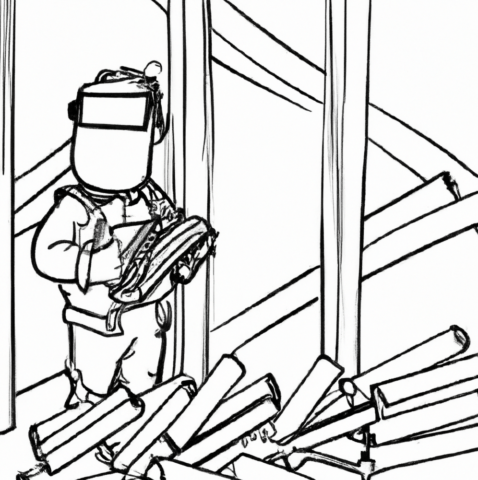Selecting the right welding wire for each type of steel is critical to achieving strong, durable welds. Different steels have unique properties — from strength to corrosion resistance — and require different filler materials to ensure the weld performs as intended.
The table below provides a quick reference for common steel types and the appropriate welding wires for each.
Common Steel Types and Recommended Welding Wires
| Steel Type | Appropriate Welding Wires | Example Uses |
|---|---|---|
| Carbon Steel | ER70S-6, ER70S-3, ER70S-2 (MIG); E71T-1, E71T-11 (FCAW); E6010, E6011, E6013, E7018, E7024 (Stick) | Building frames, bridges, pipelines |
| Low-Alloy Steel | ER80S-D2, ER80S-G, ER100S-1 (MIG); E8018-B2, E9018-B3, E11018-M, E12018-M (Stick) | Heavy machinery, automotive, construction projects |
| High-Strength Low-Alloy (HSLA) Steel | ER80S-D2, ER100S-1 (MIG); E7018-H4R, E8018-B2, E9018-B3, E11018-M (Stick) | Aerospace, automotive manufacturing, military equipment |
| Stainless Steel (Austenitic & Martensitic) | ER308L, ER309L, ER316L, ER347 (Austenitic); ER410 (Martensitic) | Food processing, medical instruments, chemical processing |
| Duplex Stainless Steel | ER2209, ER2307 (standard duplex); ER2594 (super duplex) | Chemical/petrochemical processing, oil & gas, marine |
| Nickel-Based Alloys | ERNiCrMo-3, Inconel 625, Inconel 718, Monel 400, Hastelloy C-276 | Aerospace, power generation, chemical processing |
| Tool Steel | E312 (stainless electrode for tool/dissimilar steels), nickel-based fillers (e.g., ENiCrMo-3), manufacturer-specific tool steel electrodes | Repair of dies, molds, and cutting tools |
| Cast Iron | ENiFe-CI (nickel-iron), ENi-CI (pure nickel); ⚠️ Mild steel rods (e.g., E6013) only for temporary or non-critical cosmetic repairs | Engine blocks, pump housings, machinery repairs |
Key Takeaways
- Carbon steel can be welded with a wide range of wires, but low-hydrogen rods (E7018) are preferred for critical work.
- Low-alloy and HSLA steels require matching strength wires — consult the WPS when working on structural applications.
- Stainless and duplex steels must be welded with the correct grade to preserve corrosion resistance.
- Nickel alloys demand specialist fillers to withstand heat and corrosion.
- Tool steels are best repaired with E312 or nickel-based electrodes to avoid cracking.
- Cast iron requires nickel-based rods and usually preheating; mild steel rods should only be used for patch repairs.
👉 Choosing the correct welding wire doesn’t just improve weld quality — it prevents defects, reduces rework, and ensures the finished weld meets safety and performance standards.




